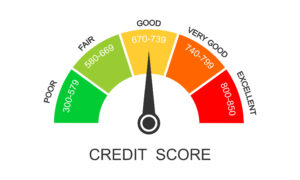
Credit scores play a crucial role in your financial health, influencing everything from loan approvals to interest rates. Among the factors that affect your credit score, credit utilization ratios are particularly significant. In this blog, we’ll explore how credit utilization ratios work and their impact on your credit score. Contact Berkshire Hathaway HomeServices at (310) 373-0021 for help finding the perfect Southern California home.
Understanding Credit Scores
Credit scores from FICO and VantageScore, the two most prominent U.S. credit scoring companies, are calculated based on a variety of factors. Here’s a breakdown of these factors and their respective weights:
- Payment History (35%): Your record of on-time payments.
- Amounts Owed (30%): Total debt and credit utilization ratio.
- Length of Credit History (15%): How long your credit accounts have been active.
- New Credit (10%): Recently opened accounts and credit inquiries.
- Credit Mix (10%): Variety of credit types (e.g., credit cards, loans).
The “amounts owed” category, which includes your credit utilization ratio, is a significant component of your credit score.
What is Credit Utilization?
Credit utilization is a measure of how much of your available credit you’re using at any given time. It applies specifically to revolving credit accounts such as credit cards, personal lines of credit, and home equity lines of credit. Unlike fixed-term loans (e.g., mortgages or car loans), revolving credit allows you to borrow, repay, and borrow again.
How to Calculate Your Credit Utilization Ratio
To calculate your credit utilization ratio, follow these steps:
- Add Up All Balances: Sum the balances of all your revolving credit accounts.
- Add Up All Credit Limits: Sum the credit limits of all your revolving credit accounts.
- Divide and Multiply: Divide the total balances by the total credit limits, then multiply the result by 100 to get a percentage.
For example, if you have a total balance of $2,000 and a total credit limit of $10,000, your credit utilization ratio is 20%.
The Impact of Credit Utilization on Your Score
Most financial experts recommend keeping your credit utilization ratio below 30%. Here’s why:
- Higher Ratios Lower Scores: If you utilize more than 30% of your available credit, it can negatively impact your credit score. For instance, a credit card with a $5,000 limit should ideally have a balance no higher than $1,500.
- Balances and New Loans: High balances on new loans without a payment history can also lower your score. Conversely, maintaining small balances or paying off balances over time can positively affect your score.
Strategies to Manage Credit Utilization
Managing your credit utilization ratio effectively can help improve or maintain a healthy credit score. Here are some strategies:
Pay Down Balances
One of the most straightforward ways to reduce your credit utilization ratio is to pay down your credit card balances. Focus on paying more than the minimum payment to reduce your balances faster.
Increase Credit Limits
Requesting a higher credit limit from your credit card issuer can improve your credit utilization ratio, provided you don’t increase your spending. This increases your available credit and lowers the ratio.
Avoid Closing Accounts
Closing credit card accounts can reduce your total available credit, thereby increasing your credit utilization ratio. Keep your accounts open, especially if they have no annual fee, to maintain a higher available credit limit.
Regularly Monitor Your Credit
Regularly check your credit report to monitor your credit utilization and overall credit health. This helps you stay on top of any changes and address issues promptly.
We Are Here to Help You Find Your Dream Home
Understanding and managing your credit utilization ratio is crucial for maintaining a good credit score. By keeping your utilization below 30%, paying down balances, increasing credit limits, and monitoring your credit, you can positively impact your credit score. For more personalized advice finding the perfect home, contact Berkshire Hathaway HomeServices at (310) 373-0021. We’re here to help you achieve and maintain financial health.


